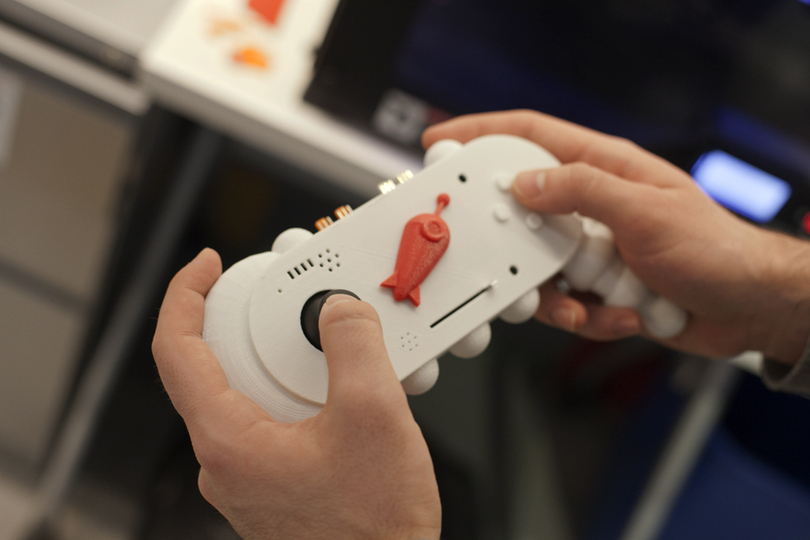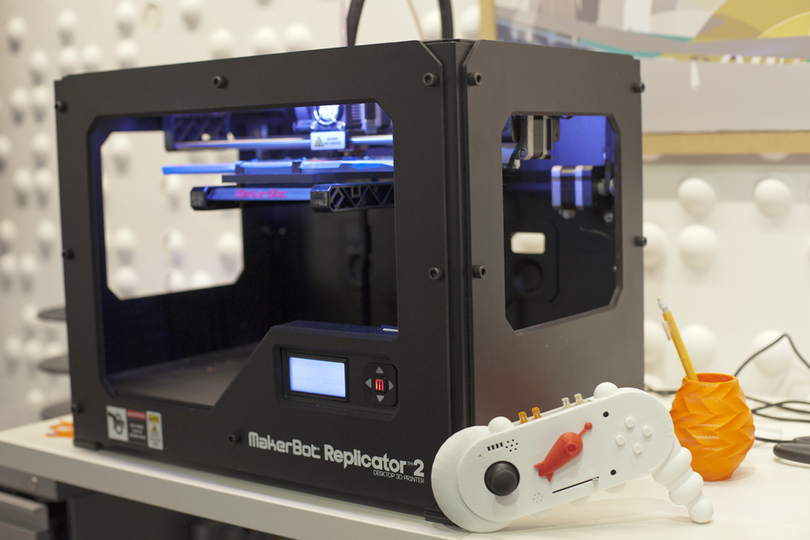Students develop idea, coding for video game
In today’s video game industry, some of the highest selling games are known for their realistic graphics, in-depth storylines and complex controls.
However, in a throwback to ’90s games like Snake and Asteroids, two students in the School of Information Studies have created a game called “Little Matter” that requires little more than a joystick and some concentration.
Jay Getman and Alexander Krapf, both sophomores in the iSchool, came up with the concept for the game and developed it together. In the game, the user controls a small galaxy named Glo, directing the galaxy around the screen to collect stars while avoiding “evil” galaxies, which aim to prevent the user from capturing stars.
“Little Matter” uses an Arduino controller, which is an empty computer chip in the shape of a game controller, Krapf said. He and Getman just had to program the controller so it recognized commands such as up, down, left, right and so on.
But the appearance of a blank computer chip wasn’t quite what the pair was looking for.
“We decided it should look a little nicer, and we had a 3-D printer upstairs (in the iSchool),” Getman said. “So we designed a case, did it in one afternoon and it came out nice.”
It took about a month to go from concept to final product, though in total, Getman said, it only took between 25–30 hours to code the game.
Getman and Krapf, who met freshmen year, said the game is at a point now where it can be beta-tested, adding that they could take it further if they wanted to.
Once the game was developed, Getman and Krapf said those who played it all enjoyed it.
There are five levels in the game, each with more enemy galaxies to avoid. In order to advance from level to level, the user must collect enough stars, which randomly appear on the screen.
“It’s so simple but people who played it got really into it,” Getman said.
One of those who got to test the game was Syracuse University Chancellor Kent Syverud, who tried out the game at a #FutureFriday event in the iSchool’s NEXIS laboratory, which focuses on exploring emerging technologies, according to its website.
“He cared and he tried, I’ll give him that,” Krapf said. “He seemed to appreciate what we were doing and that’s what matters.”
Krapf added that Syverud’s wife, Ruth Chen, was also there and seemed interested in the game.
Getman said people have asked the pair to turn “Little Matter” into an iPhone or Android app, something Krapf said he never initially thought about.
For now, the two said they are considering designing different games, specifically one using leap-motion, which Getman said is similar to an Xbox Kinect, but even more precise in tracking motion.
Krapf and Getman said they will take what they learned from creating “Little Matter” into account for future projects. They’ve discovered that developing a game others enjoy is achievable with time and effort.
“I learned that we can just (make the game) if we take the time to,” Krapf said. “The outcome of the game was the best part. People loved it.”
Published on March 4, 2014 at 1:49 am
Contact Brett: blsamuel@syr.edu | @Brett_Samuels27







